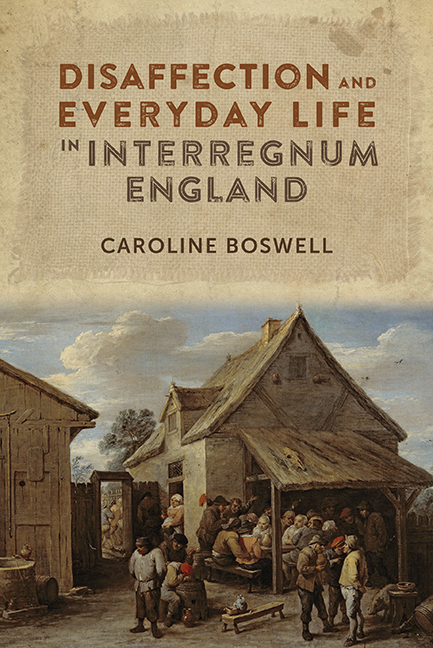Summary
As Julianne Mortimore and Cristobel Towill traveled home to Exeter from Newton Abbott market in 1656, Towill took the opportunity afforded by the long journey to bluster about Oliver Cromwell, the Lord Protector of England, Scotland and Ireland. As Mortimore tells it, Towill proudly proclaimed that she would join those eager to “cut” the Protector's throat should he ever descend on Exeter. Towill desired retribution – she held Cromwell personally responsible for the downfall and execution of King Charles I and his councilors, the Earl of Strafford and Archbishop William Laud. Mortimore chose to overlook her companion's seditious threat until she overheard an argument between Towill and her husband, William, three weeks later. During this relatively ordinary quarrel between husband and wife, William supposedly told Cristobel that if he “could not live quiet”, he would find himself a horse and “take upp Armes for my Lord Protector”. Horrified by her husband's profession of loyalty, Cristobel allegedly retorted that if William attempted it, she would “cut” his horse's “throate”.
Within this ordinary squabble we can see how the extraordinary transformations that accompanied the regicide of Charles I, the creation of a republic and the rise of the Cromwellian Protectorate infected relations between Julianne Mortimore and Cristobel Towill. Mortimore's account of Towill's fractious behavior echoes countless depositions against discordant women who, it was claimed, had a predilection for causing strife, but Towill's alleged treasonous exclamation placed intense pressure on her relationship with Mortimore. As wives of men in the cloth trade, Towill and Mortimore likely traveled to and from the market regularly. Indeed, Mortimore's ability to eavesdrop on the couple suggests that the two families interacted frequently. If Cristobel Towill truly uttered the violent threat against Cromwell's life, Mortimore faced the difficult choice of either upending relations between those who inhabited her everyday life or risking her own reputation and safety by failing to report the dangerous words of a known acquaintance – especially in “godly” Exeter. Conversely, if Mortimore wished to disrupt her association with the Towills or cause discord in Cristobel's family, the Protectorate's treason laws – combined with the divided loyalties of the Towills – provided Mortimore an ideal opportunity.
- Type
- Chapter
- Information
- Publisher: Boydell & BrewerPrint publication year: 2017

